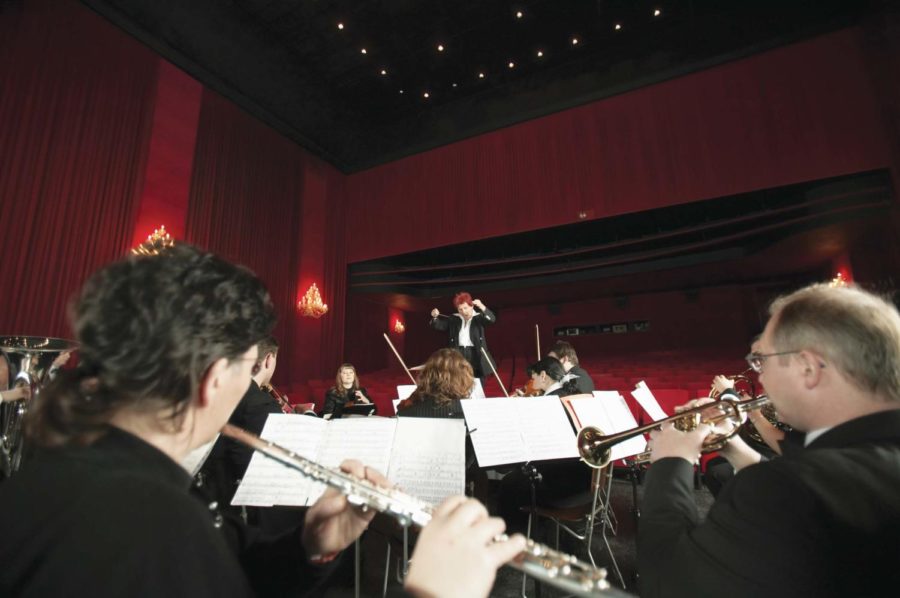Bruning: Music concepts apply to politics, too
Orchestra performing in a theater
December 8, 2011
Getting hundreds, thousands or millions of people to work together in harmony is rarely an easy task. Coordinating individual voices within separate sections in one body requires patience and knowledge. Allowing all to be heard but allowing those with something particularly special creates a fine line to walk.
Music and politics are oftentimes brought together in the context of making a political statement through lyrics. However, the structure of a choir and the actions of its members oftentimes mirror the actions of truly political members.
At the head of it all is the conductor, the one that we look to for direction and knowledge. A leader that guides us to the best that we can be yet leaves room for individual growth and interpretation.
Different sections singing different notes create dissonance, a sound that is not always immediately pleasant to the ear, but the conflict eventually creates balance. Politics is born out of initial disagreement. That initial clash of opinions is what spurs discussion and collaboration. Unison is rarely found. Each voice and each section has its own interests and abilities, which allow for a broader spectrum on which to base our decisions . Our unique qualities are imperative to the solving of public problems. Unison tends to be boring when overdone. As more parts and more voices are heard, we find depth and intrigue. Stifling the individual inherently stifles politics as we are unable to participate to our full ability.
We crave change and contrast. Seeing, hearing or doing the same thing over and over again rarely entertains us or produces anything new. A whisper leading up to a grand fortissimo creates heightened contrast and impact. It allows that one majestic moment to stand out and be heard instead of throwing everything we have got onto the floor. Action created out of spontaneity in one grand moment allows us to see ourselves in our best form rather than blindly grasping for greatness.
At times one voice will stick out. When we are overwhelmed with one voice that insists on sticking out and forcing an audience to listen, we find it obnoxious and overbearing. Factions will yell their own selfish whims and desires from the rooftops until we don’t have any choice but to listen. But we must search for a voice of reason that allows others to be heard and is willing to contribute their voice to the group. We hope that when one voice does stick out. It will stick out as the lovely, pure sound that comforts, makes sense to us and inspires us.
Sometimes we are out of tune. Sometimes we need to listen to others around us to position ourselves within the group. Sometimes our politics will be bad and corrupt. However, sometimes we need to stand out and lead. We need to help others find the pitch, or figure out the rhythm. We need to command our stage.
There are guidelines along the way, a tip here or there on how to perform. We can choose to follow those guides or make our own path. Within those guides there is always room for interpretation and musicality. Music, like politics, has loose boundaries that are easily stretched and modified to our need or taste.
Every once in while we come across something that moves us. That draws tears or drives us to action. We look for these instances as inspiration to act ourselves.
Music is a deeply intimate and personal experience that is put into the public realm for all to see. It requires balance, strength, emotion and willingness to make it public and contribute to the polis, or public realm.
Our actions in politics are no different. It requires the drive and bravery to take your personal ideas and values and put them into the public for others to see. For without allowing the world to hear our music or ideas, it is impossible for art and action to spread.
We look to people in the past to influence the leaders of the future. Whether we draw our inspiration from Brahms, Bach and Mozart or Rawls, Locke and Rousseau we can use our own voice to influence and contribute to the choir.







